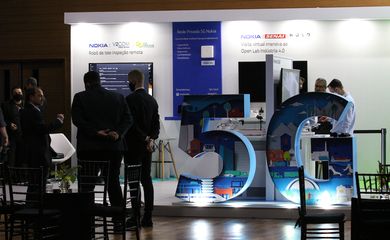Claro, Vivo, Tim win 3.5 GHz spectrum in Brazil’s 5G auction

Telecom operators Claro, Vivo, and Tim scooped up three batches of the 3.5 GHz spectrum—the main one in the auction of the fifth-generation (5G) mobile technology held by Brazil’s telecom regulator Anatel.

Winity II Telecom won the 700 MHz frequency. Since the company does not control any radio frequency, Brazil will have a new wireless operator with nationwide coverage.
The auction started Thursday and is expected to end today (Nov. 5). Also to be considered are bids for the 2.3 GHz and 26GHz bandwidths.
Frequencies have specific purposes and companies place their bids on different batches within each strip. The winning bids for the 3.5 GHz spectrum were: $60.4 million (5.18% premium) from operator Claro for batch B1; US$ 75 million (30.69% premium) from Vivo for batch B2; and US$ 62.7 million (9.22% premium) from TIM for batch B3.
The tender offer also included a fourth batch in the 3.5 GHz bandwidth, with national coverage, but no bid was placed. The exploration rights of the strips are to last 20 years.
The winning companies have investment commitments defined by the Ministry of Communications. The goal of the exchange is to address deficiencies in infrastructure, modernize network technology, and disseminate access to telecom services across the country.
Among the pledges are migrating the parabolic TV signal to leave the 3.5 GHz strip free for 5G, affording the associated costs; building a private communication network for the federal government; installing an optic fiber network in Amazon riverbeds; bringing optic fiber to the countryside; and making 5G available in every state capital by July 2022.
The 700 MHz spectrum
Winity II Telecom offered the largest bid—$255 million—for the first 700 MHz strip to be auctioned, with countrywide coverage. The amount to be paid is 805 percent above the minimum required.
The operator gains the service rights for 20 years, which may be extended, and includes the execution of the pledges to build infrastructure for 4G coverage across 625 locations in the country with no internet access and in 31 thousand km of federal roads.
The auction is expected to raise a total of approximately $8.9 billion. Of this amount, $1.7 billion will come as part of grants for the government and another $7.1 billion will be used by companies to carry out the associated commitments.


